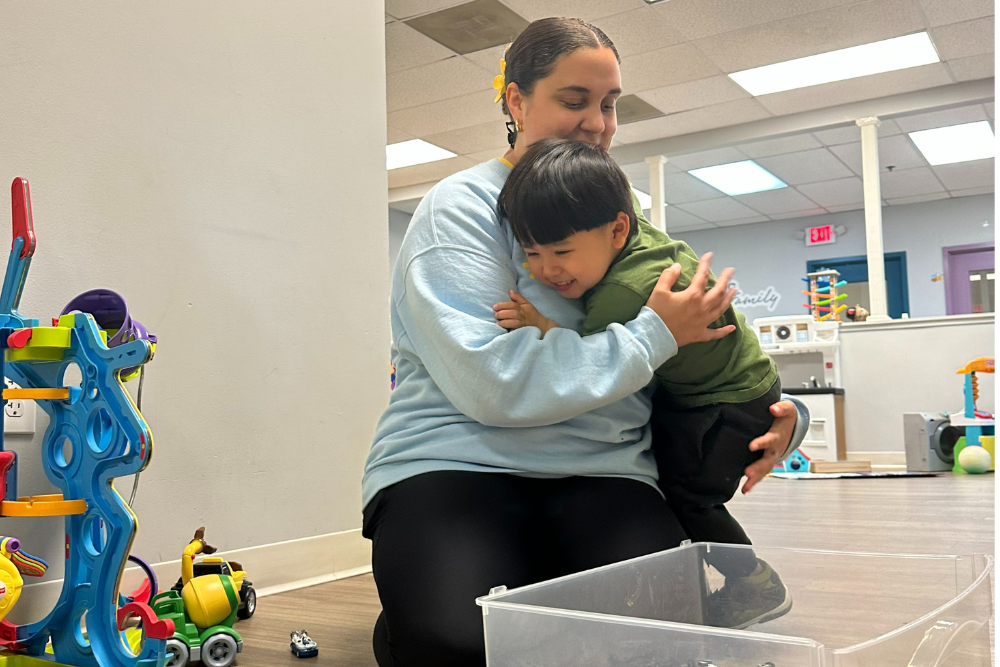
An effective autism treatment plan nurtures your child’s social, functional, and behavioral development. Depending on your child’s overlapping needs and how they best learn, identifying which programs will be the most beneficial for your child can be challenging. Below are some helpful tips and ideas to guide your search for the most effective autism therapy program.
1. Learn More About Your Child’s Needs
Before committing to an autism therapy program, an important first step is to take the time to research your child’s specific diagnosis. Learning more about your child’s unique strengths and challenges will provide clarity and empower you to make the best decisions when comparing providers and therapy options in the future. With more knowledge, you and your family can ask more pertinent questions and have more meaningful and effective conversations. With more information on your child’s autism diagnosis, you and your child’s providers can all work together to provide an encouraging, supportive, and educational atmosphere.
2. Compare Potential Program Options, Including ABA, Speech, and OT
When searching for credible autism therapy in Philadelphia, PA, NJ, CT, or MD, look into autism treatment options that are relevant to your child’s ASD diagnosis. Solutions like speech therapy, occupational therapy, and ABA (Applied Behavior Analysis) therapy are among the most beneficial program types to promote meaningful learning and reaching developmental milestones.
There are various levels of autism programs ranging from intensive all-day programs to supportive part-time options. These therapy programs may occur in a clinic, daycare, school, community, home environment, or some combination of a few of these locations. For some children, an immersive ABA program that involves social engagement, practical problem-solving, communication targets, and learning readiness skills may provide amazing outcomes. For other children, a less intensive autism therapy program that revolves around social skills and increasing independence with everyday tasks may best fit their needs. Whatever the intensity of the program, you’ll want to ensure that you, as the parent, are involved in your child’s treatment. You know your child best and spend the most time with them. Ensuring you feel confident in supporting their growth can be a deciding factor when choosing a provider.
Similar to how each child is unique, each autism diagnosis involves a varying spectrum of learning, behavior, and social communication needs. Researching diagnosis facts and comparing program options can be a great place to start, but remember, each autism treatment approach is different and should evolve over the course of the treatment. The support systems you choose for your child should have the ability to carefully adapt to your child’s needs.
3. Be Involved In The Plan Creation With Board Certified Behavior Analysts (BCBAs)
Part of the intake process for autism treatment includes an assessment of your child. This is also true for HHF’s intake process, which includes an informative, BCBA-led assessment. This assessment is used to build a meaningful ABA, speech, and/or occupational therapy plan. With your child’s big-picture goals in mind, our clinical team creates an autism treatment plan to address your child’s needs in the most impactful way. Throughout treatment, our BCBAs will also continue adapting your child’s treatment plan to fit their ever-changing needs. When evidence-based autism therapy blends with authentic encouragement, personalized care, and an adaptive clinical team, learning functional skills and age-appropriate behavior can become fun and fulfilling growth that’s accessible for kids at every age and stage of development!
Whether you’re starting autism services in Pittsburgh, PA or one of our many other locations, our intake team provides support with all necessary steps. We also have a wealth of free resources on our user-friendly website if you would like to learn more about our approach to merging fun activities with meaningful functional, social, and behavioral development.





